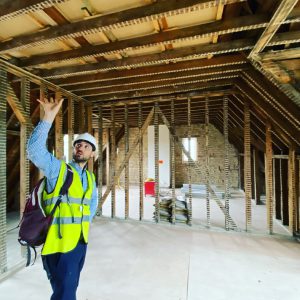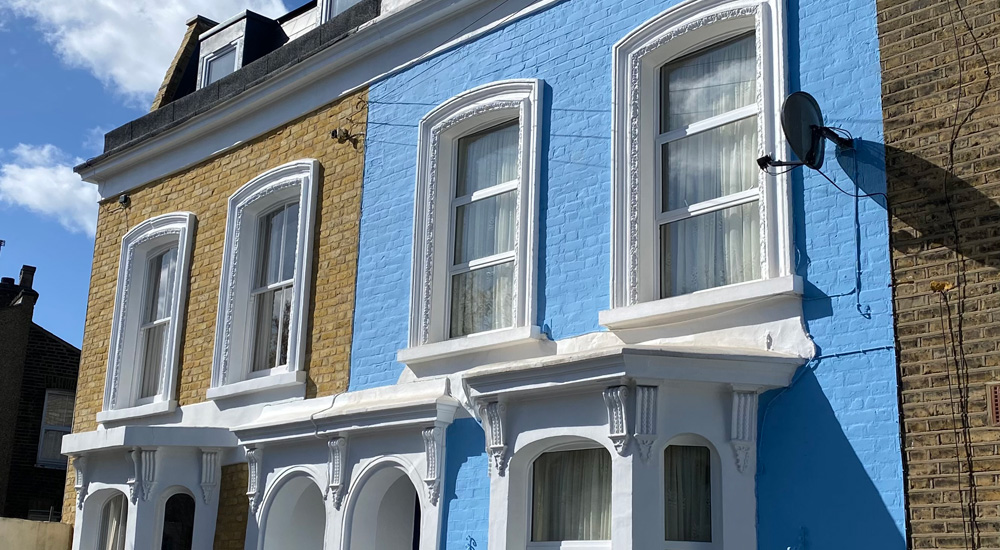 The process of selecting the appropriate property professional is confusing to both the public and many lenders and insurers. Unlike the term ‘Architect’ which is protected in law, the terms ‘Surveyor’ and ‘Engineer’ are not and can, unfortunately, be used by anyone. It helps to use the term Chartered Surveyor or Chartered Engineer as this immediately indicates a high level of professionalism and competence provided by the various institutions for each profession.
The process of selecting the appropriate property professional is confusing to both the public and many lenders and insurers. Unlike the term ‘Architect’ which is protected in law, the terms ‘Surveyor’ and ‘Engineer’ are not and can, unfortunately, be used by anyone. It helps to use the term Chartered Surveyor or Chartered Engineer as this immediately indicates a high level of professionalism and competence provided by the various institutions for each profession.
On the residential property scene, whether buying and selling, or carrying out building work, the following descriptions are useful.
Chartered Surveyor
Often referred to as a “General Practice” Surveyor this surveyor will have a broad knowledge of property and a general understanding of buildings and construction, but not to the same extent as a Chartered Building Surveyor (see below).
The three main types of pre-purchase home survey or report are normally undertaken by a General Practice Chartered Surveyor and may include a valuation for mortgage purposes. These are:
RICS level 1 Home Survey – for conventional property, already in reasonable condition; involving a visual inspection and a simple traffic light system of reporting on condition but excluding advice on repairs and ongoing maintenance.
RICS level 2 Home Survey – an intermediate survey, involving more extensive inspection and reporting than level 1 for conventional construction in reasonable condition; with more detailed reporting on the condition and importance of the issues raised.
RICS level 3 Home Survey – for older larger or run down, unusual, or greatly altered properties or if planning major works. This more detailed report will identify issues of concern and probable cause and make recommendations for remedial works, sometimes with costs, if agreed in advance.
You can find more guidance about RICS Home Survey Reports at the RICS (Royal Institution Of Chartered Surveyors) website.
Chartered Building Surveyor
A Chartered Building Surveyor is more commonly hired for commercial construction projects, than a residential property and has a higher level of technical skills than a General Practice Surveyor. They are more likely to undertake RICS level 3 Home Surveys and are sometimes involved in specification and design work, supervision, and arrangement of building works. They would not normally advise on valuation. A Building Surveyor may also undertake further investigations of defects uncovered during the various RICS surveys, of a non-structural nature such as water ingress problems.
Quantity Surveyor
A Quantity Surveyor is an accountant of the building industry. They specialise in providing independent costing advice for building works and repairs and require technical drawings and specifications to price accurately.
 Chartered Structural Engineer with CEng MIStructE qualifications
Chartered Structural Engineer with CEng MIStructE qualifications
A properly qualified Chartered Structural Engineer is the best person to appraise any sort of structural problem such as cracking, movement, or issues with floors, roofs, or bulging walls. CEng stands for Chartered Engineer, and MIStructE stands for member of the Institution of Civil Engineers.
Always look for a Structural Engineer with the proper qualifications and relevant experience. A Structural Engineer’s specialist expertise is important. For instance, a bridge or motorway design engineer will not be as knowledgeable about residential properties. This applies particularly to surveying older houses and period homes which benefit from years of hands-on experience, rather than numerical calculation and theory. So, it is essential to choose a Structural Engineer with the right skills and knowledge for the job.
Chartered Civil Engineer with CEng MICE qualifications
Some qualified Civil Engineers have diversified into the small-scale residential design sector and occasionally carry out residential reports. However, this is not commonplace, as most lenders and insurers stipulate the MIStructE qualification. As above, someone who is trained in the design of motorways and marine structures may not be suitable for a residential project unless their CV clearly indicates extensive experience in this area.
Graduate Engineers and part-qualified Engineers
We are aware of instances where homeowners have instructed postgraduate engineers who have only recently graduated or who have achieved an intermediate qualification but are not fully qualified Chartered Structural Engineers. This has led to abortive instructions and duplicate professional fees when lenders and insurers reject their reports because of insufficient qualifications regardless of experience, so do be careful.
Project Manager
Project Manager is a term that’s often misunderstood and should not be confused with being the manager of a building contractor. The building industry is dependent on the use of subcontractors for various trades such as electricians and plumbers. Subcontractors are usually hired by a building company known as the main contractor, which has been employed by the property owner. A project manager might be hired to help arrange, oversee, plan, and monitor the works on behalf of the client but it will be the main contractor or builder who is responsible for the delivery of the project.




